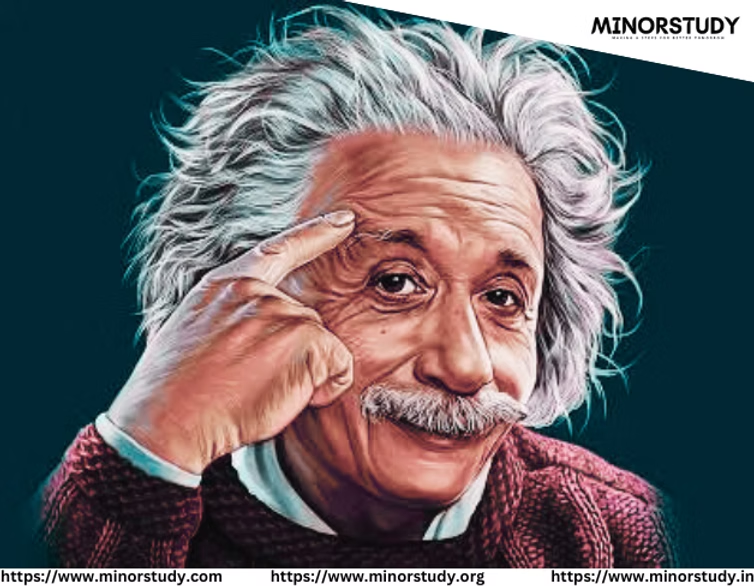Albert Einstein: The Genius Who Revolutionized Physics
Full Name: Albert Einstein
Born: March 14, 1879, Ulm, Kingdom of Württemberg, German EmpireDied: April 18, 1955, Princeton, New Jersey, USANationality: German-born, later Swiss and AmericanField: PhysicsKnown For: Theory of Relativity, E=mc², Quantum Theory, Photoelectric EffectAwards: Nobel Prize in Physics (1921)
About Albert Einstein
Albert Einstein is widely considered one of the greatest physicists of all time. His theories of relativity and quantum mechanics revolutionized our understanding of the universe. Einstein’s work reshaped the foundations of physics, cosmology, and our understanding of time and space.
Key Contributions
Theory of Relativity:
Special Relativity (1905): In his special theory of relativity, Einstein introduced the famous equation E=mc², which explains the equivalence of energy (E) and mass (m), with c being the speed of light. This theory revolutionized the understanding of space, time, and energy.
General Relativity (1915): Einstein’s general theory of relativity extended the special theory to include gravitation, describing gravity as a warping of space and time. This theory replaced Newton’s law of gravitation and has been confirmed by numerous experiments, including the bending of light by gravity and the observation of gravitational waves.
Photoelectric Effect (1905):Einstein explained the photoelectric effect, where light shining on a metal surface ejects electrons from it. This work was pivotal in the development of quantum theory and earned him the Nobel Prize in Physics in 1921. His explanation of the effect showed that light has both wave and particle properties, a fundamental concept in quantum mechanics.
Brownian Motion (1905):Einstein provided a theoretical explanation for the random motion of particles suspended in a fluid, known as Brownian motion. His work confirmed the atomic theory of matter and was critical in supporting the idea that atoms and molecules exist.
Cosmological Constant:Einstein introduced the cosmological constant in his general theory of relativity to maintain a static universe. However, he later dismissed it as his “biggest blunder” when it was found that the universe was actually expanding. This constant has since become a key part of modern cosmology, especially in the study of dark energy.
Unified Field Theory:Later in his career, Einstein attempted to formulate a theory that would unify all the fundamental forces of nature (gravity, electromagnetism, etc.). Though he did not succeed, his efforts laid the groundwork for later attempts, such as string theory.
Historical Significance
Einstein’s work fundamentally changed how we understand the universe. His theories of relativity altered the way we perceive space and time, and his contributions to quantum mechanics have had profound implications for technology, including semiconductors and nuclear energy. Einstein’s equations have influenced a wide range of fields, from astrophysics to particle physics and cosmology.
Interesting Facts
Nobel Prize in Physics:Einstein was awarded the Nobel Prize in Physics in 1921, not for his work on relativity (which was still controversial at the time), but for his explanation of the photoelectric effect, which laid the foundation for quantum mechanics.
Famous Thought Experiments:Einstein is known for creating thought experiments to illustrate his theories. One of his most famous thought experiments is the idea of riding alongside a beam of light, which led him to the development of special relativity.
Emigration to the United States:Einstein fled Nazi Germany in 1933 due to his Jewish heritage and political beliefs. He accepted a position at the Institute for Advanced Study in Princeton, New Jersey, where he remained for the rest of his life.
Einstein’s Brain:After his death, his brain was removed for research purposes without permission from his family. It was preserved and studied, but findings were inconclusive regarding any physical difference that could explain his genius.
A Public Figure:Beyond his scientific achievements, Einstein was a public figure, known for his activism. He spoke out on issues like civil rights, pacifism, and the dangers of nuclear weapons.
Why Einstein Was Important
Albert Einstein’s contributions changed the very fabric of physics. His theory of relativity revolutionized the understanding of space, time, and gravity, while his work in quantum mechanics helped to lay the foundation for modern physics. The technological advancements made possible by his theories, including nuclear power and GPS, continue to impact society today.
Einstein’s work has not only influenced science but also impacted philosophy and the way we think about the universe. He was a symbol of intellectual achievement and is still revered as one of the most brilliant minds in human history.
Blessings to Society
Einstein’s work has had far-reaching impacts on the development of modern technology, science, and society:
Technological Advancements: His theories are essential to the functioning of modern technologies like GPS, nuclear power, and telecommunications.
Scientific Legacy: His work continues to inspire scientists in fields such as astrophysics, quantum mechanics, and cosmology.
Social Contributions: Einstein was an advocate for peace, civil rights, and democracy, using his platform to speak out against injustice.
Observance and Themes
Relativity and Time: Einstein’s theory of relativity has become a cornerstone in modern physics, particularly in understanding the large-scale structure of the universe, black holes, and gravitational waves.
Innovation and Discovery: Einstein is often seen as the epitome of scientific creativity and innovation. His willingness to challenge established ideas has inspired countless scientists and innovators to think beyond the conventional.
Humanitarianism: Einstein’s social and political activism, especially his stance on pacifism, civil rights, and anti-nuclear campaigns, has made him a global icon for social justice.
Conclusion
Albert Einstein was not just a groundbreaking physicist; he was a profound thinker whose ideas transformed science and our understanding of the universe. His theories of relativity and work in quantum mechanics remain foundational to modern physics. Through his scientific achievements and advocacy for peace, Einstein has left a lasting legacy on both the scientific community and society as a whole. His iconic equation, E=mc², and his contributions to our understanding of the cosmos continue to inspire and shape scientific progress today.








